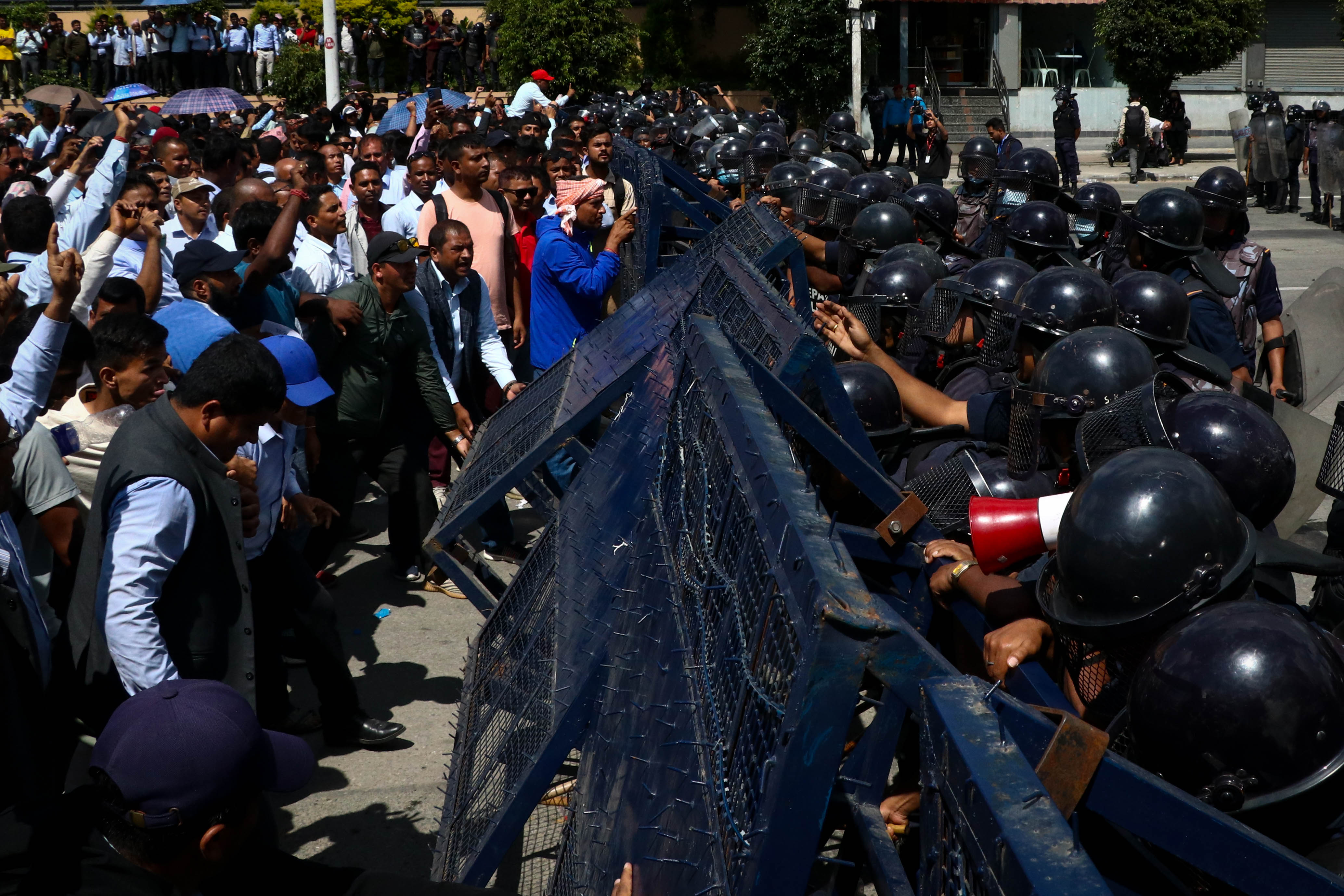Editorial: Hard lessons

That teachers of government schools are not happy with the Education Bill presented in the Parliament for discussions has become common knowledge in this day and age of information and communications technology.
Even sections of the public unaware of the Nepal Teachers’ Federation’s boycott of the meeting called by the Ministry of Education, Science and Technology to discuss the former’s concerns are now aware, most probably, of the Kathmandu-centric protest.
With around 15,000 teachers from across the country descending on the roads of Kathmandu as part of their protest to press for the fulfillment of their demands, teaching-learning activities have come to a halt in schools, affecting a large number of children.
The impact is not limited to the classroom, though. The daily demonstrations from teachers have caused inconveniences galore to the hapless masses. Traffic congestions in the already clogged arteries of Kathmandu have become the norm rather than the exception, causing immense difficulties to hundreds of thousands of road users, including motorists, pedestrians, cyclists and bikers. Traffic police personnel never had it easy; the protest has made their job more difficult.
What has ‘made’ the teachers slam the classroom door on the student and hit the streets, thereby causing traffic jams in the federal capital? Per the federation, the bill has failed to address issues like job security of temporary teachers, creation of non-teaching staff positions, concerns of pre-school teachers, promotion of teachers, appointment of the principal, transfer of teachers as well as performance appraisal. The bill’s provision on empowering local governments to evaluate and transfer teachers has also not gone well with the federation.
This does not mean that the teachers have no right to exercise a horde of rights, including collective bargaining, a fundamental right, an internationally-accepted practice and an important means through which employers and their organizations and trade unions can ensure fair wages and working conditions. Collective bargaining covers issues like wages, working time, training, occupational health and safety and equal treatment. The objective of negotiations is to arrive at a collective agreement that regulates terms and conditions of employment.
But then democracy is not a one-way road. While exercising their right, one should not trample on others’ rights and this applies to the teachers too. Our society has high regards for teachers, it takes the teacher (Guru) as the remover of darkness (ignorance), it takes them as the guiding light. The teachers should have also respected the rights of other sections of the society, including the children’s right to education, while exercising their rights.
Without causing further inconveniences to the public, the government and the federation should hold talks and reach a negotiated settlement. The onus is on both sides to soften their respective stances for the greater good of Nepal’s education sector, which also includes children, who symbolize a bright future of this country.
related news
Press Council directs sidhakura to remove fake content
April 26, 2024, 7:28 p.m.
Ensure migrant workers’ voting rights: Lawmakers
April 26, 2024, 2:33 p.m.
Jeetendra Dev: We have to restructure and reorient our foreign policy
April 26, 2024, 11:28 a.m.
Former minister Alam among four handed life imprisonment for 2008 Rautahat blast
April 26, 2024, 8:39 a.m.
Editorial: Nepal’s investment climate myths
April 26, 2024, 8:25 a.m.
Bhutanese refugee scam: SC orders police to keep Top Bahadur Rayamajhi among seven in custody
April 25, 2024, 8:32 p.m.
President approves mobilization of Nepal Army in April 27 by-polls
April 25, 2024, 7:50 p.m.
Prabal Adhikari: Energy Trade Blueprint of Nepal
April 25, 2024, 5:54 p.m.










Comments